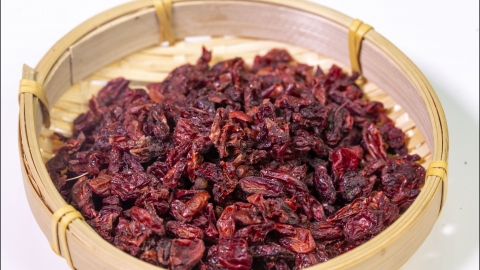Can patients with cirrhosis drink Cornus officinalis (Chinese cornel)?
Patients with cirrhosis generally can consume Cornus officinalis (Shanzhuyu) if their condition is relatively stable. However, if the condition is poorly controlled and symptoms of discomfort are present, it is usually not advisable. If physical discomfort occurs, prompt medical consultation is recommended, followed by management according to medical advice.

As a traditional Chinese herb, Cornus officinalis has functions of nourishing the liver and kidneys and exerting astringent and stabilizing effects. In the treatment of cirrhosis, especially for patients with liver-kidney yin deficiency syndrome, Cornus officinalis can be used as an adjunctive herb. When cirrhosis patients exhibit symptoms of liver and kidney deficiency, such as dizziness, tinnitus, and soreness and weakness of the waist and knees, and their condition is relatively stable, they may take, under medical guidance, appropriate traditional Chinese herbal formulas containing Cornus officinalis to assist treatment and alleviate symptoms.
However, for patients with decompensated cirrhosis who develop symptoms such as ascites, hepatic encephalopathy, or gastrointestinal bleeding, or those with portal hypertensive gastropathy or esophageal and gastric varices, consumption of Cornus officinalis is generally not recommended. Patients may require protein restriction and a low-salt diet, and the use of Cornus officinalis might interfere with these therapeutic measures or even worsen the condition.
Liver function and coagulation function tests should be completed before drug administration. In daily diet, patients should avoid consuming excessively fatty or strongly stimulating foods.
References:
[1] Ren Jing, Liu Lin, Lu Qin, et al. Clinical research progress on the mechanisms and functional changes of thrombocytopenia in patients with cirrhosis[J]. Journal of Modern Clinical Medicine, 2025, 51(02): 132-135.
[2] Wang Jiajun, Wang Zeping, Wang Xuelian, et al. Research progress on chemical constituents and pharmacological effects of Cornus officinalis[J]. Chinese Traditional and Herbal Drugs, 2025, 56(03): 1088-1103.






